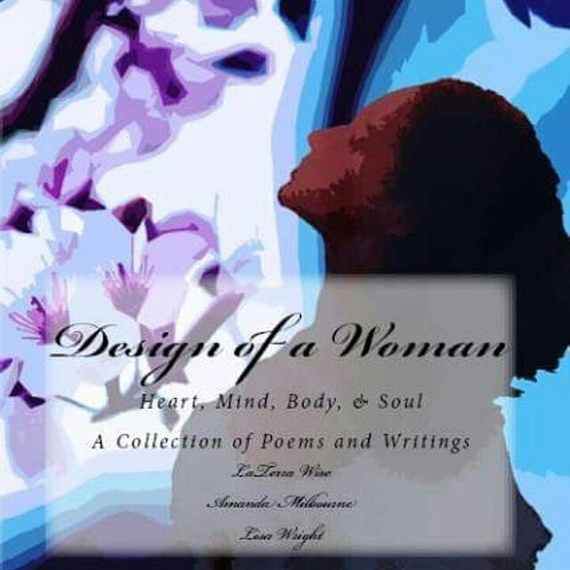
Lisa, Laterra, & Amanda (left to right) Photo Credit: Torrez Wise of Remember Always Events & Videography Suicide’s Trail of Questions According to the American Foundation on Suicide Prevention, suicide was the 10th leading cause of death in the U.S. in 2013. Those of us who are left with the shock of a loved one or even an unknown person dying by suicide may have a barrage of questions about what they were feeling at the time. LaTerra Wise was at the edge and ready to end it all as a teenager. A message from God to write about her experience and help others, saved her life and …
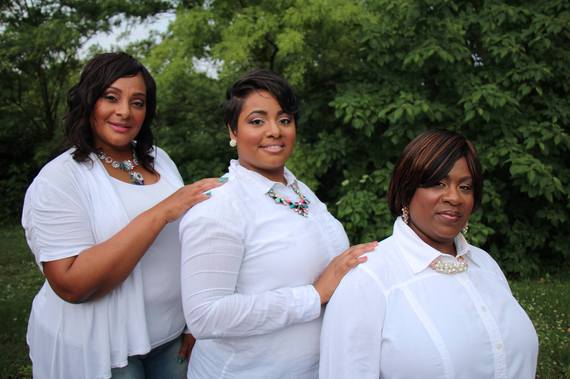 Lisa, Laterra, & Amanda (left to right) Photo Credit: Torrez Wise of Remember Always Events & Videography
Lisa, Laterra, & Amanda (left to right) Photo Credit: Torrez Wise of Remember Always Events & Videography
Suicide’s Trail of Questions
According to the American Foundation on Suicide Prevention, suicide was the 10th leading cause of death in the U.S. in 2013. Those of us who are left with the shock of a loved one or even an unknown person dying by suicide may have a barrage of questions about what they were feeling at the time.
LaTerra Wise was at the edge and ready to end it all as a teenager. A message from God to write about her experience and help others, saved her life and led her to self publish and co-author the collection of poetry, Design of a Woman: Heart, Mind, Body, & Soul. It launched this August, more than fifteen years after that very night.
In honor of National Suicide Prevention Month the authors of Design of A Woman: LaTerra Wise, Lisa Wright and Amanda Milbourne break the silence too often felt by women in faith communities, to share some of the experiences that have shaped their poems such as: suicide, depression, abuse, rape, self hatred, having abortions and other subjects that unfortunately, are still taboo for many people.
This includes charting their path to the other side- women owning and rocking their flaws to embrace their own awareness, sexuality and faith. All in hopes of helping anyone move beyond the darkness, like they did, into self acceptance, embracing life’s joys; experiencing passionate, loving sex at 50; and finding a life’s purpose.
Regardless of your faith, race, ethnicity, gender, sexuality or marital status, if you or someone you know has ever felt the depths of sadness and hurt and felt there were no answers these brave words may shed some light.
You can follow the Design of a Woman authors on Facebook and Twitter.
Knocking On Death’s Door
HP: Tell me about the night that you received your message.
LaTerra: I was a freshman in high school, in that transitional phase in life where l was trying to figure out who I was. Then you have those outside influences trying to define you and the pressure inside to be one thing. I grew up in the church and having that pull and the pull from friends, It came to a point where I didn’t know who I was. Then the depression came. I didn’t really know why but I remember one night I was crying. I would cry a lot at night. I don’t think anyone in my family knew because everyone would be asleep. I remember one night going into my grandfather’s room and looking at his medicines and thinking I wonder how much I will have to take to not be here anymore.
LaTerra took the bottles to her room and sat alone crying. All of a sudden she remembers a break, like a silence, and then she was given a vision from God, a message that said clearly,” the writing is going to save you.” She was given the title Design of a Woman: Heart, Mind, Body, & Soul. A great sense of peace came over her. She got up put away the pills, cried a little more and went to bed.
HP: How did you feel immediately after experiencing this?
LaTerra: My feelings [of depression] did not go away at that time. I went to a church service a short time after that and a friend of mine who was my age came up to me and cried on my shoulder. That is when I said, OK, I’m not the only one. What I am going through is not about me. What I am feeling is not just about me but what I have to say may help others in the future. My stories and my problems will be able to help them. That is the point when I accepted that vision and felt my purpose. I carried that with me”
Jump forward a marriage, four children and a degree later, LaTerra found herself once again lost and creatively unfulfilled.
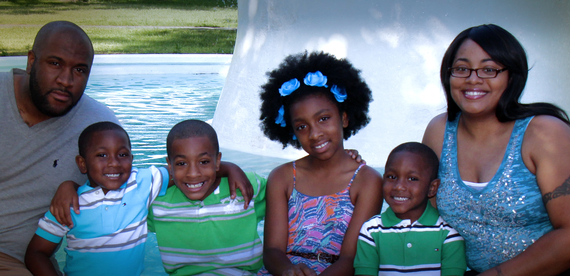
LaTerra with her family. Photo Credit: Torrez Wise of Remember Always Events & Videography
HP: What happened to writing the book?
LaTerra:I was lost in being mommy and making sure that everyone else was taken care of but not taking care of me as a woman. The things that were important to me got pushed back.
This time however, she didn’t grab the bottle of pills but her pen and the help of her mother, Lisa Wright, and fellow writer and sister in faith, Amanda.
LaTerra: The purpose that was given to me from the time that I was depressed came to a point that needed to come out. I would not have been able to write it in that moment because I had not lived enough. I needed to experience other things. I think for Amanda and my mom it was a similar situation where our families were our priority and writing was put to the back burner until last year when we got more serious about it.
The Words of Darkness, Acceptance, & Joy
Into the Darkness
Lisa, “Death’s Rejection”
HP: I was surprised that with your deep spiritual beliefs that you would write poems that speak about thinking of death and suicide. Can you tell me about that ultimate rejection.
Lisa: The poem itself is talking about someone who has led a reckless life, someone who is suicidal, looking forward to death, seeking that, bating death, wanting death so much, seeking it and then it doesn’t happen. She comes so close. She comes face to face with death and then at the end even death rejected her.
HP: Is this autobiographical?
Lisa: Not per se, I can definitely relate. I can relate. I’ve been to that place of depression. I have never tried to commit suicide. I’ve never been to the extreme of taking a pill. I can remember riding down the road one day on my way to work. I lived on a country road, in a country town, so there were a lot of trees on my way to work and I remember one day just driving and saying to myself, ‘If I just run into that tree I can end it all right now.’ That was probably the most significant time that I thought about suicide. There has been the depression and thinking about it but never making a plan or making it a reality.
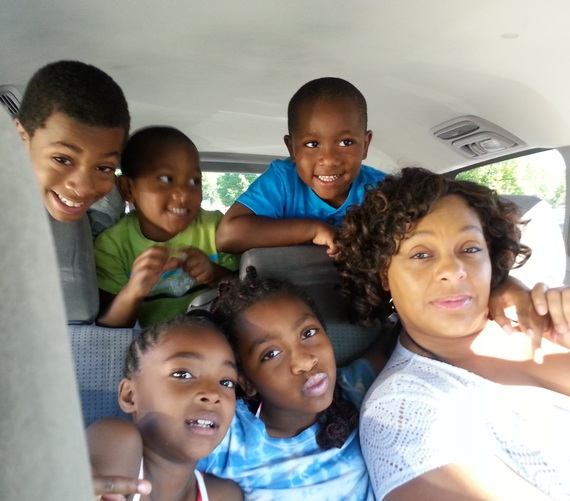 Photo Credit: Torrez Wise of Remember Always Events & Videography
Photo Credit: Torrez Wise of Remember Always Events & Videography
HP: Why the death’s rejection? What kind of space were you in when you wrote this?
Lisa: Probably one of those depressed states. We go through stuff with situations that you don’t want to be in at a place where you feel nobody is there for you, no one loves you, cares about you, no one cares if I live or die. So, maybe then it would be better if I wasn’t there. What would people think if I wasn’t here?
I remember having those thoughts, how would people feel if when they woke up tomorrow I wasn’t here. You know, so you kind of go to that place. When I wrote this poem I was thinking about all that and then at the end sometimes you have a change of mind. So, like even death rejected me. So thinking of all those things but you don’t go through with it.
HP: Does this poem have a connection to finding purpose?
Lisa: Absolutely. Even with a person who is depressed or even people who attempt suicide if it doesn’t happen, death rejects you, death didn’t conquer you this time. There is a purpose. So you live a little longer, you look a little deeper and try to find out what that purpose is for your life.
Sometimes we go through a whole lifetime [searching]. Some people don’t know their purpose, so we live life unfulfilled, depressed, and with those feelings of what am I here for? I think those being given a second chance, if death rejects you, is related to finding that purpose, living that purpose and trying to find out what it is.
Lisa, “Death’s Rejection”
[…]Alas I have searched so long for thee
Living my life so recklessly
Anticipating the thrill of your icy touch
Needing to feel your embrace so much[…][…]With a mocking tone He uttered a groan
And with a look of dread, He shook his head
I reached from my hand to meet his grasp
But instead he pulled back with an icy gasp
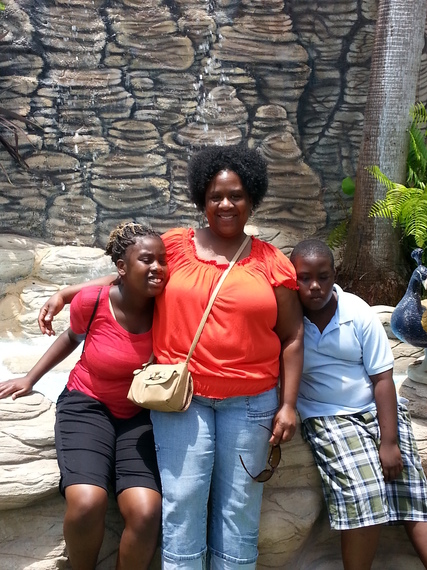
Amanda, “Free Me”
HP: In all the poems there is this thread, a realness of what women can go through, and a very concrete acceptance of the issues that you face, the times you have had to deal with, but there is also very steady, rock hard acceptance of “I am OK” with me now. Amanda, your poem “Free Me” hit a chord with me because often as people there is a long period in our lives where we keep going through the same issues but with different people. It takes a while for some of us to realize that sometimes those hurdles are not external and sometimes we are stopping ourselves from moving forward. In this poem you address coming to this awareness of what you have control over. Can you tell me about this poem?
Amanda: This poem for me was about dealing with things inwardly that were never really spoken of. Knowing that there needed to be a better me and dealing with the anger… the hurt, everything that I had gone through in life and knowing that there needed to be a better me, if not then it would consume me.
HP: Can you speak to some of that? What was the darkness?
Amanda: A lot of that was depression, being suicidal. Basically, not feeling loved and wanted. Not loving myself for one. Not being comfortable with the person that I was. I had to grow into that. Learning to love myself for who I was and for what I looked like regardless of what others thought.
The bottom line was becoming comfortable with myself. But I was still dealing with the demons within, the hurt, the rejection, the abuse, you know being raped, molested and dealing with all of that. That was part of being free because if I held onto that, it would consume me. It would either kill me or have me killing myself. I knew if it consumed me it would overtake me so I had to free myself from all of that.
Amanda, “Free Me”
I ran into my worst enemy today
And as much as I tried to avoid her,
She wouldn’t go away…
Catching me off guard with punches and blows that hit hard.
I fight back[,…]
[…]Then I shut myself off from the world…
I want and need to be freed the enemy
Before we both are destroyed
Because the enemy I speak of
Is Me.
Through Self acceptance
 Photo Credit: Torrez Wise of Remember Always Events & Videography
Photo Credit: Torrez Wise of Remember Always Events & Videography LaTerra, “All of Me”
HP: There is a line in this poem that really put together for me what all of you are doing with these experiences because I couldn’t find the words. The third line of the last stanza: “In this moment, I own everything I am.” Tell me about this poem and this process for you.
LaTerra: This poem is summed up in the last stanza. It is the acceptance of who I am. I’ve never fit the molds of the standards of beauty set by our society. I was OK with myself before children, I’ve always been hippy and I’ve always had curves and I haven’t always embraced them because people have objectified my curves.
HP: What do you mean by that?
LaTerra: Men who take advantage or who feel they can touch whatever they want to touch just because I’m a curvy person. People who have not really respected the boundaries of like, this is my body and you can’t just touch me whenever you want to. So, that kind of made me not appreciate the curves and after children when things start to stretch out and they don’t look the way they used to, and nothing is quite in the right place.
This poem came from a place where I was standing in the bathroom, looking at everything and saying, ‘You know what, this is me. I might be stretched out but I’m stretched out because I carried lives in my body. Someone has come from me and they are growing in this world and it is beautiful to be able to carry life and to be able to produce milk and sustenance to sustain them and you know that is an amazing thing. This body being able to do those things is beautiful.
And good, bad, ugly, stretch marks, dimples, everything may not be beautiful to someone else but it is beautiful to me because that is me.’ That’s the place that came from.
LaTerra, “All of Me”
[…]Turning & twisting,
Posing & pinching,
Alone with myself,
I find beauty in the imperfections.[…][…]I am at peace with the reflection staring back at me.
No airbrushing, no filters,
In this moment, I own everything I am
And as I turn away,
I smile just a little bit brighter.
Embracing the Joy of Life
LaTerra, “My Credo”
HP: In your writing you talk a lot about mental health issues but you don’t necessarily label them as death, suicide, depression or even obtaining joy. Instead you describe them, how they feel, what they look life, their effects, was it purposeful or just how things came about?
La Terra: I think for me that is just the way things came out. That is the way I write. I want you to be able to see it, to feel, to make it tangible I want to write so that you can feel you are that person. It wasn’t purposeful but I think that is kind of just the way that I have always written so it is kind of natural for me, for it to be a full experience. I want you to feel the emotions, see the scenery, taste. I want you to have a sensory experience not just to be concrete. I want you to see yourself in my writing.
Lisa, “Sweet Chocolate”
HP: Tell me about writing your trinity of poems, “Bedroom Dance”, “Sweet Chocolate” and “After Glow,” and why you went there, the there meaning having good sex at 50.
A woman at 50 doesn’t die. It is a part of life. I enjoyed writing these poems. I loved it. I wrote, “Bedroom Dance,” with a specific person in mind whom I was in love with but it could be general as well. I want people to know that sex can be great that you can know your body and be free. If they haven’t had that experience, they can have something to look forward to.That you can be real.
Amanda, “Driven”
HP: Why have you written about so many taboo subjects like death, contemplating abortion, suicide, depression, abuse and God in the middle of all of it?
Amanda: My writing has never just been for me but to help others. I have been writing since late eighties and it stems from love, sex, death, depression. I basically had written a whole lot before the book. This process for the book was easy for me because I had written already so much. I had to write some new ones, as God gave them to me, I wrote them. Writing has always been my release. I never spoke about the things that happened. I just wrote them down.
— This feed and its contents are the property of The Huffington Post, and use is subject to our terms. It may be used for personal consumption, but may not be distributed on a website.
Continued:




















